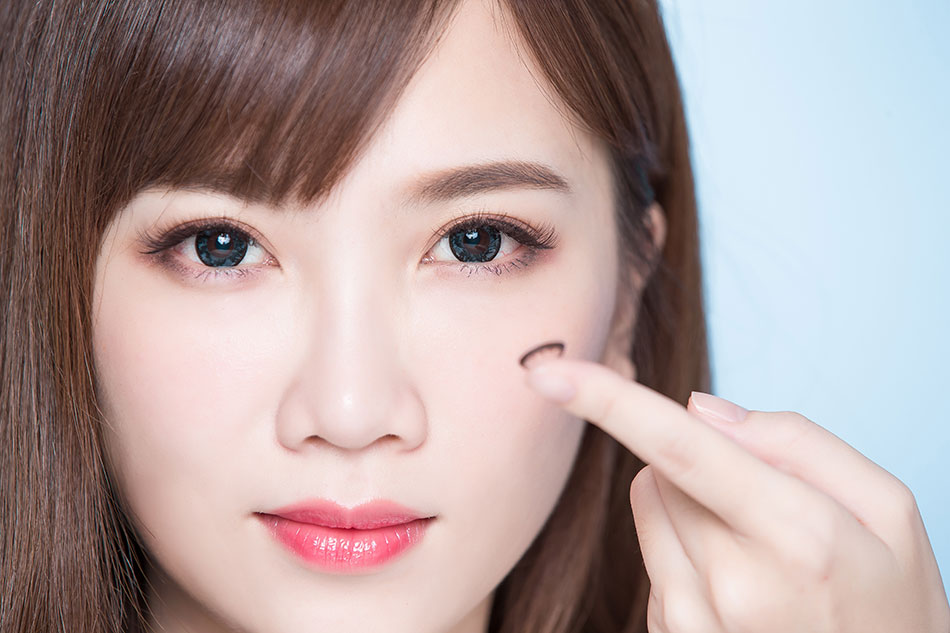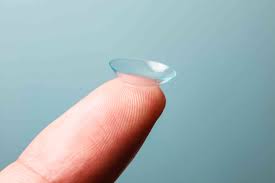Here’s is the details of 4 things you need to know about contact lenses. Let’s go we go through together one by one.
What are the main types of contact lenses and how do they differ?
Contact lenses can be broken down into two main categories; how long they’re worn for, and the eye condition they correct.
How long a lens is worn for is referred to as the wearing pattern. These include daily, monthly, two weekly and extended wear. Each wearing pattern has a different attraction.
Daily lenses are becoming increasingly popular for the convenience and hygiene they provide. Monthly lenses are valued because the same two lenses can be worn for 30 consecutive days.
Two weekly lenses are seen as the middle ground between daily and monthly lenses. Finally, extended wear lenses can even be left in overnight during sleep.
These are especially useful for people who struggle to put their lenses in and out. However, always check with your eye care expert before selecting extended wear lenses. Specialist lenses to correct eye conditions include multifocal lenses and toric lenses.
If you have been diagnosed with presbyopia (a condition more prevalent in the over 40 age bracket) and you find you need to hold a menu at arm’s length to read clearly, your optician may suggest a multifocal lens. This lens will help you focus on objects at varying distances with ease.

Why is it important to look after your eyesight? Is there any way to slow vision loss?
It is very important to look after your eyesight. Why? Because we rely on sight as our dominant sense. This is reflected in how complicated and delicate our eyes are relative to animals. For instance, a dog’s vision is not nearly as sophisticated as humans, but their sense of smell is significantly better.
There are a number of potential interventions to reduce the need for vision correction. Contact lenses (both soft and hard), specific glasses and even eye drops have been suggested, but these tend to have varying degrees of success.
One practical suggestion is to advise our kids to put their devices away. Data from many studies demonstrate that the high level of near work associated with devise usage can increase myopia.
It is also thought that myopia progression may be caused by light levels, so it’s a good idea to get kids outside to play – which keeps them away from their devices for a while!
How can contact lens wearers prevent Contact Lens-Induced Dry Eye (CLIDE)?
Things you need to know about contact lens is most contact lens wearers will be familiar with dry eye, or contact lens-induced dry eye (CLIDE), as it is known. CLIDE can leave lens wearer’s eyes feeling dry, irritated and fatigued.
Luckily there are methods to fight back. Taking regular breaks from lenses can help. We recommend that lens users also have one free lens day a week, if possible.
The water content of lenses may also have some impact on how dry wearers eyes become. A lower water content lens may help towards reducing CLIDE. The reason being is that high water content lenses tend to absorb moisture from the eye via osmosis as they lose water during wear.
Wearing silicone hydrogel lenses may also reduce the symptoms of CLIDE. This is because silicone allows more oxygen to flow to the eye, which is essential for producing healthy natural tears while also maintaining a low water content. It’s worth consulting your optician to see if a new prescription might help you battle dry eyes.
What advice would you give to somebody thinking of trying contact lenses for the first time?
It’s important to get an eye test to determine if your eyes are suitable for contact lenses.
If your optician recommends contact lenses to you, the next step is to be clear on what you want your lenses for. This will allow your optician to suggest the best option that really works for your eyes.
Your optician should also suggest appropriate contact lens care products including solutions and eye drops.
If you find the initial lenses your optician selects for you to be uncomfortable, don’t be afraid to experiment with different wearing patterns, lens material, and brands – after further consultation with your eye care expert. Keep trying new lenses until you find a lens you can wear all day without discomfort.
Things you need to know about contact lens is a most important to before you decide to buy it through online or at optical shop and don’t forget to have your contact lens prescriptions at your eye doctor! Let’s make an appointment with us at Malaya Optical Optometrists.


